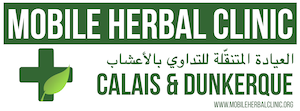The Mobile Herbal Clinic Calais is a dedicated mobile clinic that endeavours to take place in Calais and Dunkirk in Northern France every month. The team needs at least four volunteers every month to run the week-long clinic.
If you are interested in volunteering in Calais with the clinic please contact us.

Our delivery team will change from month to month. While there may be flexibility to reflect the skillset and experience of individual members, our overriding priority is to deliver consistent, patient-centred, safe, effective, high-quality care. Over time we have found the four roles below offer a skeletal structure from which to do this.
In the field, it is our practical choice that one team member has a supervisory role or a ‘final call’. But outside this specific context, each person is part of a team that aspires to be horizontal in power and decision making.
- Clinical Supervisor – The ‘first-aid’ demands on our mobile clinic can often be straightforward, but they may also be complex. We believe it would be unethical to deliver without someone in this role. This person needs to have five years of clinical experience as a medical herbalist or have equivalent medical training (e.g. a medical doctor). This role delivers as a clinical ‘backstop’ function. The person in this role will make the final call on triage and referral and ensure volunteers are working within the scope of their practice. The clinical supervisor will facilitate a clinical debrief each morning so that volunteers practice safely but also continue to learn, skillshare and develop.
- Herbal First Aiders – These volunteers may work on the external medicine station, whereby they will be attending to dressings, wounds, musculoskeletal and skin complaints. They may also work on the internal medicine station, attending to upper respiratory infections, digestive complaints and more. They will always be supported by a Clinical Supervisor. Herbal First Aiders may be herbalists with less than 5+ years experience. They may also be students towards the end of their training. They can also be nurses, paramedics or trained first aiders.
- Field Coordinator – The function of this role is to manage the logistical elements of organising the clinic before and during the week. This includes coordinating transport, any compliance paperwork, COVID-19 testing and so forth. They are responsible for managing the extensive inventory of first aid supplies and herbal medicines. This includes restocking the vehicle each day. They will also act as a timekeeper and ensure the trip is as smooth as possible for the entire team. It helps if this person is a driver.
- Communication and Support Assistant – An essential part of the mobile clinic is translating between refugees and the team to ensure appropriate treatments or referrals. A large part of being out in the field is communicating to someone where exactly the hospital is or how to see a dentist, for example. This can be time-consuming and take a lot of creativity if no translators are available. People in this role may do the important task of communicating this information and ensuring it has been understood. They may also support the trip in whatever way is practically needed, for example, cleaning equipment, stock taking, filling the tea urn etc. This role can be done by people without clinical experience if needed, or by students at the beginning of their training.
